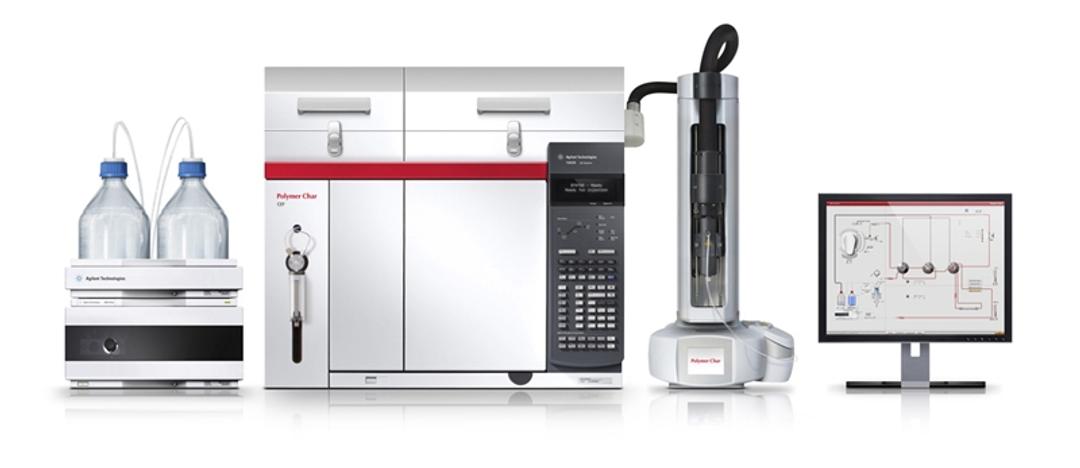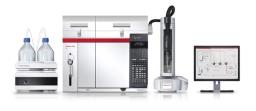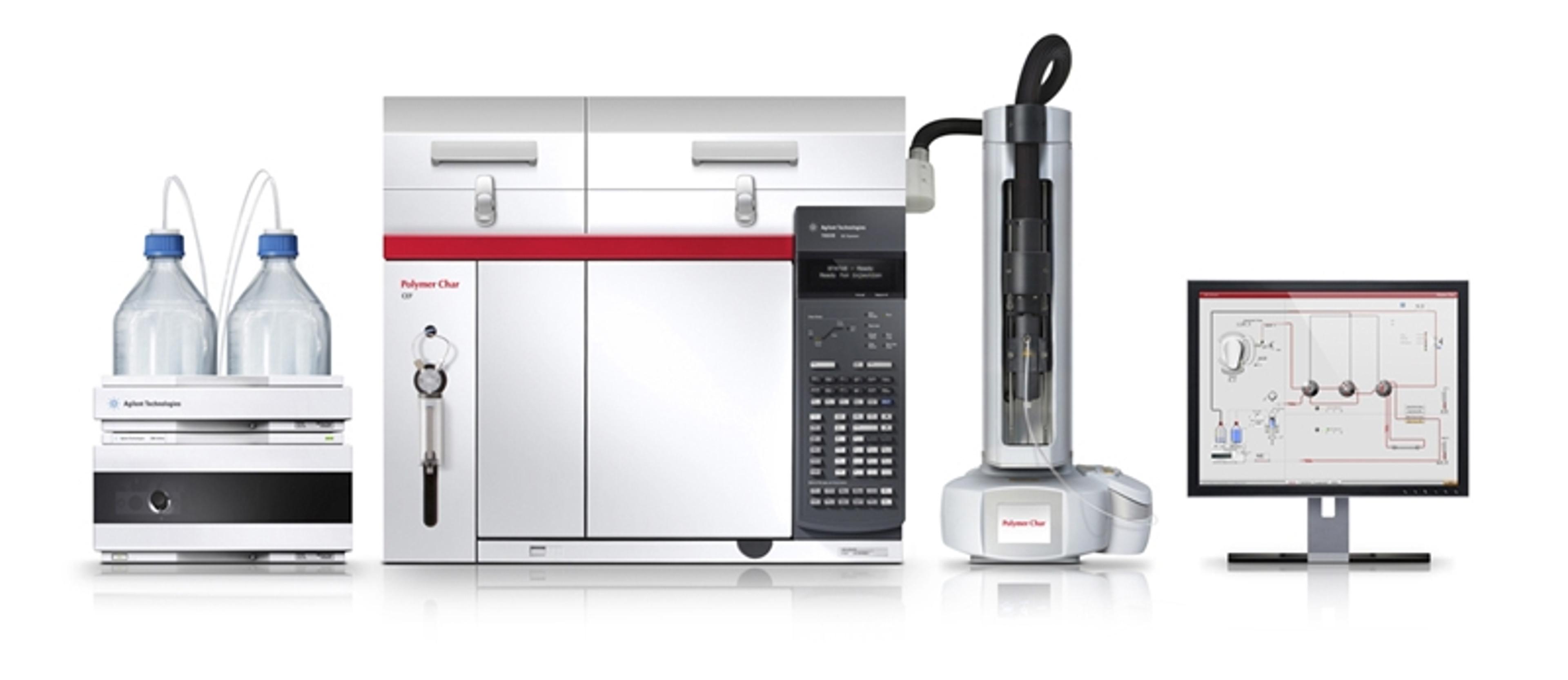CEF
Crystallization Elution Fractionation for Polyolefins.

The supplier does not provide quotations for this product through SelectScience. You can search for similar products in our Product Directory.
Crystallization Elution Fractionation (CEF) is a new approach to measure the Chemical Composition Distribution (CCD) in Polyolefins by combining CRYSTAF and TREF separation mechanisms. It is of special interest for high speed analysis.
Overview
Crystallization Elution Fractionation (CEF) is a new approach to measure the Chemical Composition Distribution (CCD) in Polyolefins by combining CRYSTAF and TREF separation mechanisms. It is of special interest for high speed analysis.
CEF instrument is a simple and reliable instrument, requiring only an injection valve, a packed column, a pump and an IR detector. The autosampler, attached to the CEF oven, deals with samples dissolution in vials of 10mL. The instrument has the capability to analyze 50 samples a day automatically.
The Virtual Instrumentation software controls the full process, therefore no manpower is required. Samples are put into the vials and the instrument performs the solvent filling, dissolution, column loading and temperature cycles combined with pump flow control. At the end of the analysis, lines and column are cleaned and the CEF is ready to analyze more samples.
The concentration of the sample is measured by an Infrared detector (Polymer Char’s IR4), which can also offer information about comonomer content if a composition sensor is added. More information can be obtained by adding Viscometer and/or Light Scattering detectors.
Features
· Analysis of a sample every 30 minutes for high speed applications.
· Simple and reliable hardware.
· 70 samples can be analyzed sequentially with no supervision required.
· Fully automated process, including sample preparation, no solvents handling.
· Glass disposable vials (10mL).
· Detector for concentration is the well-known IR4, with outstanding baseline stability.
· Possibility of adding a composition sensor to the IR detector to measure comonomer content.
· Possibility of incorporating other detectors like Viscometer or Light Scattering (DAWN® HELEOS™ II 8 or 18 angle of Wyatt Technology).
· Possibility of subambient operation (down to -20ºC) for low crystallinity samples.
· Low solvent consumption.
· Very good reproducibility.
· Virtual instrumentation software with the possibility of remote control for a fast diagnosis.
Available Detectors
Infrared Detector IR4 OEM
IR4 is the standard detector incorporated by default in all the Polymer Char analytical instruments in its OEM version. IR4 is a dual wavelength stand-alone infrared detector, which uses the principle of infrared absorption spectroscopy to measure the concentration and composition in polyolefins.
IR4 is designed to measure on-line concentration and composition in HPLC, GPC or to couple it with other separation techniques like CRYSTAF, TREF, etc., and it has been proved as the most appropriate detector for polyolefins.
When adding a composition or a carbonyls sensor, other useful information can be obtained in addition to the concentration.
Viscometer
A high sensitivity capillary viscometer is an ideal complement to the Infrared detector in some polyolefin characterization instruments such as GPC-IR, TREF, CEF or CRYSTEX.
Viscometer configuration is optimized to achieve a better performance in each technique.
Light Scattering DAWN® HELEOS™ II of Wyatt Technology
Light Scattering detectors provide absolute measurement of Molar Mass. When coupling a Light Scattering to a Polymer Char instrument, complementary information can be obtained to have a more complete and precise characterization.
Light Scattering is especially effective in some techniques like GPC/SEC, for instance when searching for Long Chain Branching results among others; therefore, Polymer Char GPC-IR is designed to incorporate the most appropriate Light Scattering detector for polyolefins currently in the market: DAWN® HELEOS™ II of Wyatt Technology.
The DAWN® HELEOS™ II 8 or 18 angle is offered as an additional detector in other Polymer Char instruments such as TREF or CEF.
Software
The CEF Software is specifically designed for controlling and automating the process; no manpower is required. The software deals with the whole process, including samples preparation with the vials filling and dissolution.
A wide range of the CEF analytical process conditions are available to the user, to allow the needed flexibility for both routine analysis and research jobs, as well as to allow running a standard TREF analysis.
Up to 70 samples can be managed by the software to be run with no supervision. As each sample from the run-queue is injected and eluted, results can already be accessed from the calculations database to be reviewed, overlaid with others, to generate a report, export to Excel… even though the instrument is still running.
Manual mode in the software is also incorporated as in the rest of Polymer Char’s instruments, so the autosampler, dispenser, ovens, pump, etc.; can be directly operated by the user by means of a powerful Virtual Instrumentation interface.



